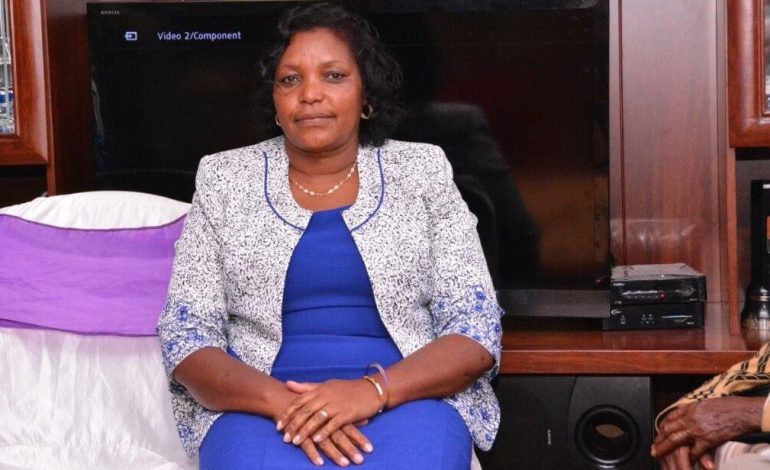A mother’s experience raising a visually impaired son

Elizabeth Macharia’s last-born son, Wilson Nderitu lost his sight at quiet an early age and she remembers it like it was yesterday. She had rushed her then one and a half-month-old son to the hospital in the middle of the night after he came under a Malaria attack. On arrival to the hospital, the attending nurse had told her that she had only two options; administer Chloroquine to the little boy or wait until the doctor came in the morning. From her training as a nurse, she knew that Chloroquine was not recommended for babies. However, she also knew that it may have been the only thing to save her child’s life. She had, thus, made the difficult decision to have her son get a Chloroquine injection.
One morning, about a month after the fateful night, Elizabeth realized that little Wilson could not see her and could not follow objects that she placed in his line of vision. She also realized that her baby was lively when she sat near a window but became gloomy when she went into a darker area. She had not witnessed such kind of behaviour with her two other children and she became puzzled. Friends who came visiting told her that the child could have hearing problems. However, no one was sure. It was only after many visits to the hospital that doctors realized that Wilson had a problem with his eyes. Wilson was also diagnosed with Nystagmus a condition which caused him to develop a squint when he tried to focus on things. They, therefore, prescribed glasses at seven months.
By this time, Wilson had had several other attacks of Malaria and each time Chloroquine was given. His mother noticed that every time the drug was administered, her child’s sight got worse and so they had to stop. She believes this was the reason Wilson was able to retain a little perception of light.
Though Elizabeth kept taking her son for check-ups, doctors could not give a conclusive diagnosis of what was ailing his eyesight. “At one time the doctors even suggested that he has a surgery because they thought he had cataracts.”
However, Elizabeth refused. It was only when Wilson was about six years that a real diagnosis was made. Wilson had Hydro Chloroquine Retinopathy. The three to four times he had taken Chloroquine caused damage to the Macula in his eyes leaving only a few cells intact.
She vividly recalls the moment the doctor told her that her child was “blind and it was irreversible.” The news hit her hard but she made a decision from that moment to give her child as normal a childhood as circumstances would allow.
The first step was taking him to a normal school, partly because she did not know of an integrated school at the time, and partly because she still believed that the boy was not totally blind especially because he could ride a bike and play with other children. It was not until she visited Kikuyu eye hospital and one of the clinicians referred her to St. Lucy’s primary school for the blind in Meru.
Raising Wilson was not without challenges which included stigma. For instance, she remembers being asked where she had left her blind child whenever she went to church without him. “My only consolation was that he was not totally blind.”
RELATED: Wilson Macharia- only legally blind
Her advice to parents with children with special needs is to avoid showing their child that they have any issue. Instead, she encourages them to only assist such children where necessary and to leave them to explore and become their own person. For instance, her family ensured that Wilson was not treated any different.
“He liked getting to school early so I would get up and prepare him and he would go to school alone. I remember one day I was late waking up. When I woke up, his bag was not where it used to be and so was his uniform, I knew he had left for school and I felt so encouraged.”
She also ensured that Wilson maintained his self-esteem even when he was away from home. For instance, she recalls once when Wilson was in Class four and the teacher asked her if her son knew of his condition because he interacted with other children as if he could see. “When I told him that he was aware, he was surprised, I told him to let him go even to the field to play with other children as this raises self-esteem.”
Even with her best efforts, she was still worried of her child’s future.
“When I went back to school to study, I thought I was going to study for my son because I did not think he would get to where he is now.”
However, Wilson surpassed her expectations to bag his law degree from the University of Nairobi and Master’s degree in human rights from the University of Pretoria where he currently works as a human rights researcher while still pursuing his PhD.




